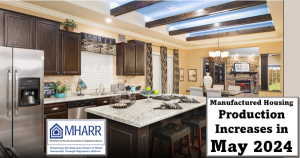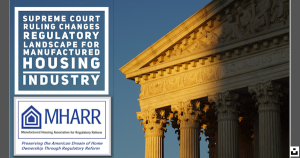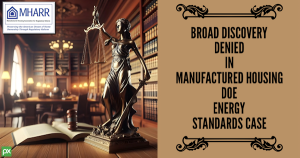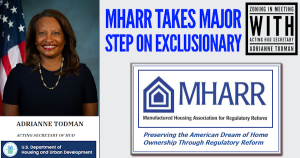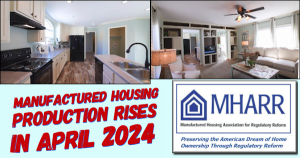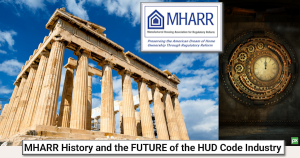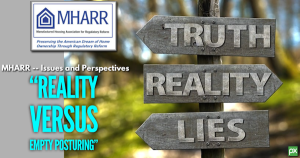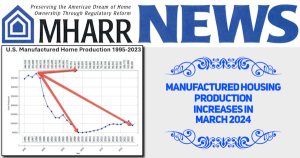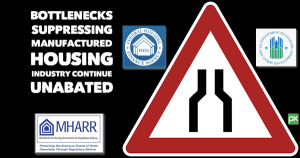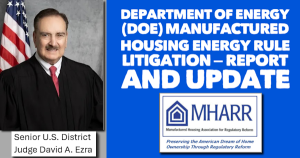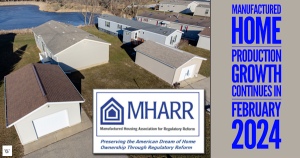[vc_row][vc_column][vc_column_text]For those who participated in the August 25, 2017 Manufactured Housing Executives Council (MHEC) conference call regarding HUD interaction with the International Code Council (ICC) concerning Appendix E of the International Residential Code (IRC) (or could not participate), it was extremely disappointing that the format and conduct of the call did not allow for a more thorough discussion of the complex and important “problem” that HUD has now discerned with alleged “conflicts” and “inconsistencies” between its Part 3285 federal installation standards and IRC Appendix E, and the genesis of this matter at HUD, which dates back to the Department’s earliest interpretation of the Manufactured Housing Improvement Act of 2000. Together with HUD’s pending effort to impose the federal installation standards – and corresponding HUD “interpretations” of those standards – on all 50 states, including states with approved state-law installation standards and programs, this matter represents a direct threat not only to the states themselves, but also to industry retailers and communities, and ultimately consumers.
Without getting into extensive detail on the various intricacies of this issue now, the industry is faced with a potential “worst of all worlds” scenario regarding installation, where HUD: (1) claims authority to override state-law installation standards (based on Appendix E or any other source) which it considers to be less strict or demanding than the federal installation standards for “default” states; and (2) claims authority to override local installation standards based on Appendix E which it considers to be less strict or demanding than the federal installation standards; but (3) refuses to preempt local installation mandates that either exceed the federal installation standards or have been used as a pretext to exclude HUD Code homes from certain jurisdictions, based on the Department’s position and contention that the federal installation standards are not preemptive.
In keeping with the theme that has emerged over the past four years, HUD’s position on this matter helps only industry competitors and HUD contractors, while it harms the HUD Code industry and its consumers. The results, accordingly, if this effort is not effectively opposed, will be all “down-side” for the industry – costly new requirements being demanded by HUD in the absence of any evidence showing their need – while the industry gets no protection against excessive and/or exclusionary installation-related mandates at the local level.
All of this ultimately goes back to HUD’s 2004-2005 decision (opposed by MHARR but tacitly accepted by MHI) to re-codify the federal installation standards outside of the preemptive Part 3280 Construction and Safety Standards. While the 1994 National Commission on Manufactured Housing, which set the groundwork for what became the 2000 reform law made it clear that it expected the new federal installation standards to become part of the preemptive HUD Code – which is why the law contains a specific exception to federal preemption for state enforcement of approved state-law installation standards – HUD’s tortured approach to installation and federal preemption is now being used in an effort to needlessly inflate installation-related costs at both the local and state level, as MHARR predicted years ago.
Ultimately, as with other aspects of the intensification of HUD regulation over the past four years (as was pointed out by MHARR), this entire matter goes back to the leadership of the program, which continues to churn out new, baseless and costly regulatory mandates even while the over-all pace of federal regulation has fallen to historically-low levels under the Trump Administration.
To ensure, then, that there is no lingering misunderstanding concerning these related issues, their genesis, or policy confusion surrounding them, MHARR will soon assemble and distribute a fact sheet which will definitively address this matter and its full context, for use in connection with upcoming meetings and discussions concerning this matter.
On a related matter, and in conjunction with the above, while concerns relating to a misstatement by HUD’s installation contractor to the effect that HUD Code standards are “minimum standards,” have already been addressed by MHI, a larger issue regarding preemption of local fire sprinkler mandates still must be appropriately addressed, which MHARR will immediately pursue – and will keep you apprised-of accordingly.
Manufactured Housing Association for Regulatory Reform (MHARR)
1331 Pennsylvania Ave. N.W., Suite 512
Washington, D.C. 20004
Phone: 202/783-4087
Fax: 202/783-4075
Email: MHARRDG@AOL.COM[/vc_column_text][/vc_column][/vc_row]



